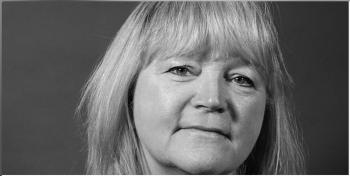Image Caption
Summary
Local Journalism Initiative Reporter
Windspeaker.com
Mental health issues. Addictions. Post-traumatic stress disorder. Back pain. All of those, said Dr. Lynn Lavallée, are symptomatic of spirit injury.
“We know that we are spiritual beings having a physical experience. So when we have physical illness that is spirit injury and it manifests itself into mental illness, into physical illness, into cognitive issues,” Lavallée told about 80 people who tuned into her webinar Jan. 12 hosted by Ontario Network Environments for Indigenous Health Research.
Lavallée, Anishinaabe/Métis, is the strategic lead of Indigenous resurgence in the Faculty of Community Services at Ryerson University.
Her talk focused on the need for resurgence of an Indigenous perspective for health and mental health.
“In mental health we talk about the recovery model and for me that’s the model that resonates the most with an Indigenous perspective, but again this is still a western recovery model and it does not acknowledge the ongoing colonization,” she said.
The recovery model, she pointed out, works with hope, empowerment, peer support, self-care, and medication, but it is “void of spirit.”
The history of colonization and genocide have clearly been captured in two recent reports, said Lavallée. The final report from the National Inquiry into Missing and Murdered Indigenous Women and Girls, which was delivered in 2019, included a 40-page supplement that framed race- and gender-based genocide. Four years earlier, the Truth and Reconciliation Commission, which examined the legacy of the Indian residential school system in Canada, called the taking of children from their homes a cultural genocide.
That colonization continues today, said Lavallée, through the Indian Act which defines who is an Indian, and political advocacy bodies like the Manitoba Metis Federation, Métis Nation of Ontario (MNO) and Métis National Council, who “are at war” with each other over identity. Lavallée is registered with the MNO.
“What I’d like to see is a complete … resurgence, sovereignty with respect to our health, our mental health,” said Lavallée, and that can only happen with a “clean slate.”
“We wipe a clean slate and we think about what do our teachings tell us about mental health. And we can’t use that terminology ‘mental health’ because … it forces us to think a certain way. So we need to wipe that slate clean and we think about illness starting with spirit injury. We are spiritual beings in this physical experience and this is where illness begins, in spirit injury… so we have to focus on healing that spirit injury... So if we focus on that, how do we feed our spirits?”
While Lavallée applauds the work allied institutions have begun to do as a means to decolonize, she said it is not enough.
“We need sovereignty and self-determination in health and healing,” she said.
Indigenous ways of healing must not be inserted into western practises, but must be the starting point, she said. Funding must be provided to allow healers to work on their own terms. Funding must also be provided for healing lodges. As institutions offer health benefits for employees to see physicians and psychologists, they must also offer those same benefits to employees for ceremonial healing. Traditional healers must be properly compensated and not simply given an honorarium.
Ceremonial areas must operate on their own and not be part of colonial institutions such as hospitals, she said.
“I think that our ceremony and that self-determination with respect to our ceremony it has to be outside of that because … when we’re in these colonial institutions we have to play by their rules and the rules don’t fit. It forces us to do things … put all these parameters in place. It’s frustrating,” said Lavallée.
“I think when it comes to our ceremony we have to have our own places with our own ways … of knowing, being, and doing… We would have different things in place to achieve what we need to achieve.”
Lavallée has no doubt that resurgence will occur despite continued colonization. Ironically, a statement made in the late 1800s by Bishop Vitale Grandin, an early supporter of Indian residential schools, gives her hope. Grandin said, “We instill in them a pronounced distaste for the Native life so that they will be humiliated when reminded of their origins. When they graduate from our institutions the children will have lost everything Native except for their blood.”
“When I read this quote I’m hopeful because we still have our blood and we know we have blood memory. Even though there is an attack on our identification, we still have that blood memory to look back upon,” she said.
“For me Indigenous resurgence is about us gathering our feathers. It’s about gathering our bundles. It’s about picking up our drums. It’s about learning about our own seven generations.”
Local Journalism Initiative Reporters are supported by a financial contribution made by the Government of Canada.

